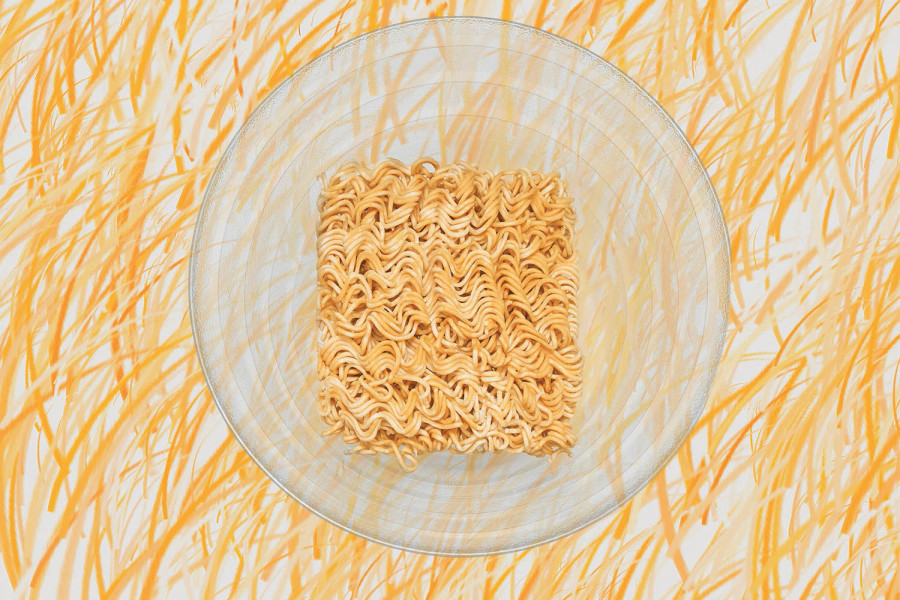Columns
Rethinking unhealthy foods
Avoiding processed food products helps people lead healthier lives.
Bharati Adhikari
The consumption of processed food in Nepal is rising due to urbanisation, busy lifestyles and exposure to global food culture. With more people moving to cities for work and education, there is a growing demand for convenient, ready-to-eat options like instant noodles, snacks, beverages, dairy products, frozen foods and canned goods. Both local brands and imports, particularly from India and China, are meeting this demand.
Processed food refers to any food that has been altered from its natural state for preservation, convenience, safety, or nutritional enhancement through methods such as mechanical processing (cutting, chopping, grinding, or mixing); chemical processing (adding preservatives, flavourings, colourings, or other additives); thermal processing (cooking, pasteurising, canning, or freezing)’ and biological processing (fermentation, enzymatic treatment, or culturing). These foods range from minimally processed items like washed and pre-cut fruits and vegetables to highly processed products like ready-to-eat meals, snacks and baked goods. The degree of processing can significantly impact the food’s nutritional quality, flavour, texture and shelf life.
In recent decades, the industrialisation and globalisation of food systems have led to rapid advancements in food processing, resulting in a vast array of foods subject to various types of processing with differing health impacts. Given their high availability, accessibility and variety, processed foods have become an inevitable part of the diet for people of all ages. This can make the foods seem more appealing, taste better, or lengthen their shelf life.
However, consumers might not know how much fat, salt, or sugar is in their food. This can cause them to eat more than expected since spotting these additives can be difficult. Because of the many ingredients, some of these foods also have many more calories. Excessive consumption of processed foods is often linked to the early onset of non-communicable diseases, primarily due to their high salt levels, saturated and trans-fats, and sugar.
The world’s population has been consuming a lot of free sugar lately, which has caused daily calorie intake values to surpass health authority recommendations and contributed to an increase in obesity rates. In response, the World Health Organisation (WHO) released guidelines on sugar intake, which strongly advise adults and children to reduce sugar to less than 10 percent (ideally 5 percent) of total caloric intake.
Salt is a key ingredient, condiment, and nutrient that are crucial to humans. Still, excessive use is linked to public health issues such as hypertension, which is estimated to cause 2.5 million deaths worldwide annually. The WHO recommends limiting salt intake to less than 5 grams daily to prevent cardiovascular diseases. While natural foods generally contain low sodium levels, processed foods contribute about 75-80 percent of daily salt intake in developed countries, with the rest coming from natural sources and added salt during food preparation. In developing countries, salt used for seasoning and sauces plays a more significant role.
Processed foods often contain various types of fats, each impacting health differently. Saturated fats in animal products and certain oils like coconut and palm can raise LDL (bad) cholesterol levels, increasing heart disease risk. Common sources of fat in processed foods include snacks like chips and popcorn, baked goods such as cakes and cookies and fried foods like French fries and doughnuts, convenience foods like ready-made meals and frozen dinners, and dairy products such as processed cheese, flavoured yoghurts and ice creams, which use fats to enhance flavour, texture and shelf life. Trans fats in partially hydrogenated oils, some margarines, baked goods and fried foods raise LDL cholesterol and lower HDL (good) cholesterol, significantly heightening heart disease risk.
In contrast, unsaturated fats, including monounsaturated fats found in olive oil, avocados, nuts and seeds, can improve cholesterol levels and reduce heart disease risk. Polyunsaturated fats in fish, flaxseeds, walnuts and sunflower oil provide essential omega-3 and omega-6 fatty acids beneficial for body functions and heart health.
One study discovered a link between the amount of ultra-processed food consumed and a higher risk of cancer, possibly as a result of food additives. These foods frequently lack vital nutrients, thus fibre, vitamins and minerals are added to make up for them. However, it can be difficult to replenish these foods’ entire nutritional content.
It can be more difficult to maintain a healthy weight when eating heavily processed foods since they digest more quickly than natural foods, which results in the body burning fewer calories. Selecting minimally processed meals is better to optimise nutritional advantages. Breakfast cereals with extra fibre, whole grains, precut veggies, low-fat milk and milk or juices enhanced with calcium and vitamin D are a few healthy processed food options.
Concerning other nutrients, it is well-known that their contents can be destroyed or removed depending on the degree of processing. Some vitamins and minerals are destroyed by heating or drying foods, while phytochemicals and fibres are removed when peeling the outer layers of vegetables, fruits, and whole grains. On the other hand, certain processing techniques are employed to retain nutrients such as the quick freezing of fruits and vegetables after harvesting. Foods fortified with specific nutrients during processing have also prevented deficiencies and related health problems in certain populations.
Having more control over the ingredients at home allows for producing or cooking healthier meals. One can make an informed decision by reading the labels and choosing foods with fewer ingredients, as they are less likely to be extensively processed. Whole food options, such as unprocessed fruits and vegetables, or those with fewer ingredients, can be a good choice. Opting for fresher products and avoiding processed meals help people lead healthier lives. Balancing the convenience of processed foods with the health benefits of traditional diets will be key to shaping future consumption patterns in Nepal.
Adhikari is a food technologist officer at Kathmandu Metropolitan City.




 10.12°C Kathmandu
10.12°C Kathmandu















